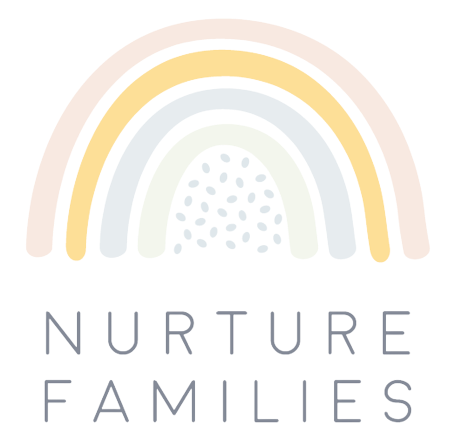- 30 Hours Free Childcare: Eligibility, Application & Support
- Eligibility Criteria for 30 Hours Free Childcare
- Understanding the 30 Hours Free Childcare Offer
- Applying for the 30 Hours Free Childcare Scheme
- Utilising Your Free Childcare Hours Effectively
- Extending Your Childcare Support Beyond 30 Hours
- Reconfirming Your Eligibility Every Three Months
- Choosing the Right Childcare Provider for Your Needs
- Additional Support for Children with Special Educational Needs
- Closing Thoughts
- Frequently Asked Questions
- Is my child eligible for the 30 hours free childcare scheme?
- How can I apply for the 30 hours free childcare scheme?
- Can I use my free childcare hours flexibly throughout the week?
- What should I consider when choosing a childcare provider?
- Will my child receive additional support if they have special educational needs?
30 Hours Free Childcare: Eligibility, Application & Support
Did you know that the concept of 'free childcare' is actually a myth? In reality, what's offered is subsidised funding. This includes both the Universal 15 hours funding and the Extended 30 hours funding. These provisions aim to support working parents by providing financial assistance for childcare costs. However, understanding the nuances of these schemes can be crucial in making informed decisions about childcare options for your little ones.
This article is part of a short series of articles on childcare funding. In this series, we'll delve into the truth behind 'free childcare' and explore how subsidised funding plays a pivotal role in supporting families.
In this article we’ll delve deep on 30 hours ‘free’ childcare.
Eligibility Criteria for 30 Hours Free Childcare
Age and Income Requirements
To qualify for the 30 hours free childcare in the UK, parents must meet specific eligibility criteria. Firstly, they need to have a child aged between 3 and 4 years old. Both parents need to be working (or the sole parent is working in a lone-parent family), each earning at least £120 a week on average.
The minimum income requirements are crucial as they ensure that families genuinely benefit from this scheme. For instance, if one parent's income exceeds £100,000 per year individually, they would not be eligible for the full entitlement of 30 hours free childcare.
Working Hours Needed to Qualify
Understanding the working hour requirements is vital. To qualify for the scheme, each parent must work at least 16 hours per week at minimum wage or higher. This ensures that families who truly rely on support with childcare costs receive it.
It's important to note that self-employed individuals can also apply as long as they meet the earnings threshold over an average of three months. This flexibility allows various working arrangements to benefit from this initiative.
Understanding "Not Eligible"
Parents should understand what makes them not eligible for this scheme. If one or both parents are taking paid time off such as maternity leave, paternity leave or adoption leave; receiving statutory sick pay; having annual leave; or are unable to work due to disability or caring responsibilities - then they may not meet the requirements during these periods.
Understanding the 30 Hours Free Childcare Offer
What's Included
The 30 hours free childcare offer provides eligible working parents in England with an additional 15 hours of funded childcare per week, on top of the universal 15 hours already available to all three and four-year-olds. This extended entitlement is aimed at supporting families where both parents are working (or the sole parent in a lone-parent family), allowing them to access more affordable and high-quality childcare.
This scheme enables parents to save significantly on their childcare costs, making it easier for them to manage work commitments while ensuring that their children receive quality early education and care. By offering this extra support, the government aims to help working families strike a better balance between work and family life.
Benefits for Working Families
For working families, the 30 hours free childcare scheme can be a game-changer. It allows them to reduce their overall childcare bill. Just be aware, ‘free childcare’ really should be relabelled ‘subsidised’ or ‘government funded’.
Like most government schemes, the ‘free childcare’ offering is underfunded. Think of it in this way, ‘part of my childcare costs are covered by the funding.’ The funding definitely goes some way to reducing your outgoings, but it does not remove the costs all together for families.
At a reduced costs compared to non-funded childcare, taking up the funding enables children to benefit from enhanced social interaction opportunities and educational development during these formative years. This not only supports their learning but also contributes positively towards their overall well-being.
Applying for the 30 Hours Free Childcare Scheme
How to Apply
To apply for the 30 hours free childcare scheme, you can complete the application process online or over the phone. When applying online, you'll need to visit the HMRC website and create an account if you don't already have one. Then, follow the step-by-step instructions to submit your application. Alternatively, you can call the HMRC helpline and provide all necessary details over the phone.
It's essential to ensure that all information provided during the application process is accurate and up-to-date. This includes details about your child's date of birth along with your own personal information such as your national insurance number.
Documents Required
During the application process, you will be required to provide certain documents as proof of eligibility for free childcare. These may include documents related to your income such as payslips or self-assessment returns if you're self-employed. Depending on individual circumstances, other supporting documentation may be requested by HMRC.
When applying online or via phone, it's important to have these documents readily available so that there are no delays in processing your application.
Deadline for Application Submission
On top of an application process is a deadline for submitting applications for 30 hours free childcare. It's imperative to be aware of this deadline and ensure that all necessary steps are completed well before this date arrives.
Failing to meet this deadline could result in missing out on benefiting from this valuable support system designed to ease financial pressures associated with childcare costs.
Utilising Your Free Childcare Hours Effectively
Limitations on Additional Charges
Be aware that there will be additional charges. While some aspects are covered by funding, most providers need to charge for food, certain activities, and additional services outside of the funding.
Before enrolling your child in a particular setting, carefully review their fee structure and policies regarding charges. Understanding these limitations will help you avoid unexpected expenses while making use of this valuable benefit.
Extending Your Childcare Support Beyond 30 Hours
Additional Options
There are several options available. One option is to look into tax-free childcare accounts, which can provide additional financial support for working parents. This scheme allows you to open a special account to save for your child's childcare costs and receive a government top-up.
Another avenue to consider is seeking advice on alternative funding sources. Some local authorities and community organisations offer grants or subsidies for families in need of extra childcare support. It's worth researching what options are available in your area.
Reconfirming Your Eligibility Every Three Months
Importance of Reconfirmation
Now, we’ve gone through the application process, the deadline process, now we have the reconfirmation process.
Reconfirming your eligibility for the 30 hours free childcare every three months is crucial. It ensures that you continue to meet the requirements and receive uninterrupted funding. Failing to reconfirm could lead to a suspension of your childcare funding, causing potential financial strain.
It's important to understand that the reconfirmation process helps authorities verify that you still meet the criteria for receiving 30 hours free childcare. This includes factors such as changes in income, employment status, or family circumstances. By regularly updating this information, you ensure that the support is allocated fairly and accurately.
Steps Involved in Reconfirmation
The process typically involves obtaining an eligibility code from HM Revenue and Customs (HMRC) after confirming details such as income and benefits received during a specific tax year or academic period. You may also need to provide supporting documents like birth certificates, proof of address, or parental declaration forms.
Upon receiving the eligibility code, it must be shared with your chosen childcare provider who will validate it with local authorities before continuing to offer funded places for your child. Remember that there may be a short grace period, giving families some leeway if they are unable to complete reconfirmation within the initial deadline.
Choosing the Right Childcare Provider for Your Needs
Researching Local Childcare Options
When looking for 30 hours free childcare, it's crucial to research local childcare options thoroughly. Start by visiting the childcare choices website and exploring the providers available in your area. Consider factors such as proximity to your home or workplace, the quality of care provided, and any specific services offered.
Seek recommendations from other parents or families who have used childcare services in your locality. They can provide valuable insights into the strengths and weaknesses of different providers based on their personal experiences. Most importantly, visit potential childcare settings in person to observe the environment and interact with staff members.
Don’t forget to ask about each provider's policies regarding availability during school holidays, and any additional costs not covered by the 30 hours free childcare scheme. Understanding these aspects will help you make an informed decision that aligns with your family's needs and circumstances.
Additional Support for Children with Special Educational Needs
Accessing Support Services
Parents or carers should inquire about the availability of specialised care and resources suitable for their child's requirements. It's essential to communicate openly with potential providers, discussing the specific needs of the child and ensuring that the setting can accommodate them effectively.
Some key points to note include understanding the types of support available, such as one-to-one assistance, or tailored support programmes. Parents should ask about staff training in supporting children with special educational needs and whether there are any specific provisions in place to ensure an inclusive environment.
Role of Local Authorities
Local authorities play a significant role in providing support for children with special educational needs. They can offer guidance on available resources and funding options, helping parents navigate through the process of securing appropriate care for their child. Furthermore, local authorities may have a list of approved childcare providers equipped to cater to children with diverse needs.
It's important for parents or carers to be aware of the benefits they may be entitled to when seeking additional support services for their child. Understanding how local authorities can assist in accessing these benefits is crucial in ensuring that children receive adequate help tailored to their individual requirements.
Closing Thoughts
Congratulations on navigating through the ins and outs of the 30 hours free childcare scheme! By understanding the eligibility criteria, application process, reconfirmation process, and ways to maximise your childcare support, you're well equipped to make use of the help available to you. Remember, staying informed about your eligibility and choosing the right childcare provider are crucial for making the most of the Government’s funded childcare offering.
We do think the current funded early education landscape is complicated and onerous for parents to navigate. There are multiple barriers within the system, including a long-winded approach to applying for, utilising and maintaining the funding. Does it really need to be this complicated?
Frequently Asked Questions
Is my child eligible for the 30 hours free childcare scheme?
Yes, if your child is aged 3 to 4 and you meet the income requirements, you may be eligible. Check with the government's eligibility criteria to confirm.
How can I apply for the 30 hours free childcare scheme?
You can apply online through the government's website by creating an account and following the step-by-step application process. Have your details and documents ready.
Can I use my free childcare hours flexibly throughout the week?
Yes, you have flexibility in how you use your free childcare hours. Discuss with your chosen provider about scheduling that suits both parties.
What should I consider when choosing a childcare provider?
Consider factors such as location, facilities, staff qualifications, and overall environment to ensure it aligns with your child's needs and your preferences.
Will my child receive additional support if they have special educational needs?
Yes, there is additional support available for children with special educational needs. Speak to potential providers about their experience in supporting children with similar needs.
Nurture Families pregnancy support services include doulas, home visitors, and parent-infant therapists.
We cover Worcestershire and North Herefordshire currently.
Get in touch today to work one to one with our pregnancy support specialists – doulas, home visitors and parent-infant therapists.


